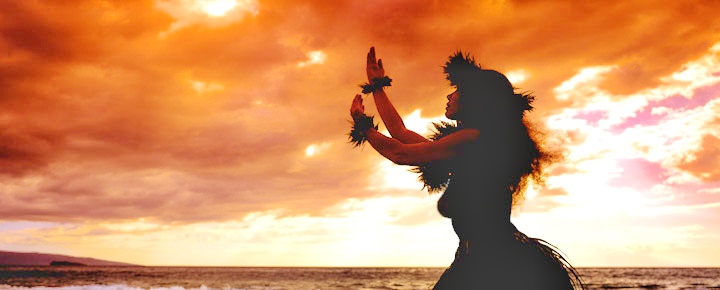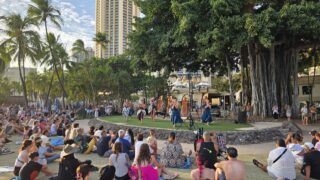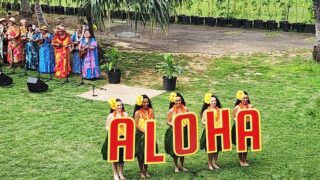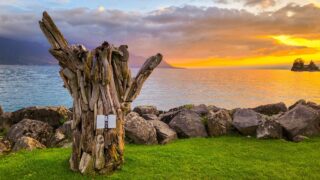So, it’s a holiday. Or is it? While much of the mainland is gearing up for Columbus Day parades and sales, or even having a day off from work, here in Hawaii, it’s mostly just another Monday – kind of. Hawaii officially embraced Indigenous Peoples’ Day in 2020, sidestepping Columbus Day entirely.
In typical Hawaiian fashion, the islands dance to their unique beat, recognizing a holiday that feels more aligned with its cultural values. But what exactly makes this holiday so different in Hawaii? And what do people here think?
Hawaii chooses to move on.
As one reader, Susan M., pointed out, “Hawaii has long embraced its Indigenous roots, and Columbus Day never really aligned with that.”
This shift didn’t come without some controversy, even in Hawaii. Michael B. shared a different perspective: “It feels like erasing a part of history, even if Columbus has his flaws.” And that’s part of what makes today interesting in Hawaii—while the rest of the U.S. grapples with how to honor or dismantle the legacy of Spain’s (not Italy’s) Columbus, the islands are focused on celebrating the culture that existed long before any European set sail.
Hawaii’s other unique holidays.
Today isn’t the only time Hawaii dances to a different beat regarding the holidays. If you’ve spent time here, you’ll notice a few other unique twists.
Prince Kūhiō Day in March and King Kamehameha Day in June are statewide holidays celebrating Hawaiian royals. While they might not be nationally recognized, these days are steeped in Hawaiian history, pride, and community, with parades, hula performances, and other events.
And let’s not forget Lei Day, celebrated on May 1st. While the mainland may have May Day, Hawaii long ago turned it into a celebration of its most iconic symbol—the lei. “It’s a day that just feels so Hawaiian,” Elaine L. said, adding, “Lei Day is one of those holidays where you realize Hawaii truly values its culture in ways other places don’t.”
These are the kinds of holidays that tell you something about Hawaii’s identity—a place that’s fiercely protective of history and culture and more interested in celebrating its values than adopting every mainland tradition.
The mainland’s perspective.
Back on the mainland, Columbus Day is still celebrated in many states, though often with much debate. James P. commented, “It’s not just about Hawaii. It’s part of a larger conversation about how America reckons with its past.”
He’s right—today isn’t just a holiday shift in Hawaii; it’s part of a broader movement to recognize issues with the past while elevating the stories and voices that have often remained silent.
Columbus Day is a federal holiday in the United States, but its observance varies by state. Many states have renamed or replaced it with Indigenous Peoples’ Day or similar observances.
A handful of states still celebrate Columbus Day as a public holiday, including Alabama, Arkansas, Montana, North Dakota, Ohio, and Wyoming. Other states, such as Nevada, observe the holiday but do not recognize it as a public holiday. Clearly, it’s complicated.
Some states, like Maine and Wisconsin, have officially replaced Columbus Day with Indigenous Peoples’ Day, while South Dakota observes it as Native American Day. The trend is moving toward reevaluating this holiday across the country, with many states shifting their focus.
Hawaii’s rejection of Columbus Day and embrace of Indigenous Peoples’ Day reflects more than just local politics; it’s a way for the state to align with values that better represent its diverse, indigenous population.
In the words of John K., “As a Hawaiian, Indigenous Peoples’ Day makes me feel recognized in a way Columbus Day never did.”
Hawaii’s twist on familiar holidays.
Even on more familiar holidays like Thanksgiving, Hawaii often adds its unique twist on food, including deep-fried turkey and Lomi-Lomi salmon, among other things. And if you’re lucky enough to experience Chinese New Year here, expect it to be a much bigger celebration than you’ll typically find on the mainland, with lion dances and fireworks. Hawaii’s cultural diversity is reflected in how it celebrates, making every holiday slightly different.
Ultimately, Hawaii’s decision to step away from Columbus Day and embrace something more culturally relevant isn’t surprising. In this place that honors different stories and values, the way holidays are celebrated reflects that.
As Elaine L. said, “Teaching our kids about native Hawaiian leaders and traditions on this day is far more meaningful than any Columbus Day ever could be.”
Hawaii is always dancing to its own beat—and that’s exactly why we like it — Beat of Hawaii
Get Breaking Hawaii Travel News







The history of Columbus surely is complicated …which makes sense for anyone who doesn’t stay in one country. Born in Genoa (Italy), moved to Portugal where he married and had a son and eventually getting the ship from the Queen of Spain to travel to the Americas . He sure was an “Explorer”, but there is no reason to celebrate “slavery” or mistreatmemt of women etc. …
Eva, no one is celebrating slavery or your victimhood, only the amazing and historical fete of an incredibly brave sailor who defied death to explore new lands. Those trying to rewrite history in today’s biased media perspective alway try to either accentuate or embellish the negative to gain attention. Try reading up on native history of watch the movie Apocolypto to gain some insight as to how ‘indigenous’ people conducted themselves. Then, direct your outrage at modern day slavery in the Middle East and Africa.
Steve P. “celebrating my victimhood”. What are you assuming? Not that it should matter, but I am white and of European descent and “victim” is not in my vocabulary. And I don’t watch “movies like Apocolypto” to get educated. I suggest you read the bio of Columbus on Wikipedia, then educate yourself on indigenous people of Hawaii which is what this post was all about. No idea why you would want to bring up the Middle East or Africa on this site. Happy to discuss that with my friends from Africa and the Middle East.
Eva, you never mentioned anything about Hawaii in your original post and my powers of clairvoyance are not that good. You mentioned ‘mistreatment of women’, which implies victimhood.
If you’re using Wiki as your authority on history, keep in mind it’s not entirely factual and its input is user based.
My grandparents were born in Genoa and I again remind you that slavery still exists and to single out one man for the alleged sins of a much larger group selectively ignores his positive accomplishments. Please try to stay positive.
Happy Columbus Day!
Where can I stay as a senior in January for abt two weeks?
Since there many holidays in Hawaii (usually once a month, combined Federal & State Holidays, Hawaii decided to do a trade off. Hawaii recognizes MLK day in exchange for not observing Indeginous Peoples Day.